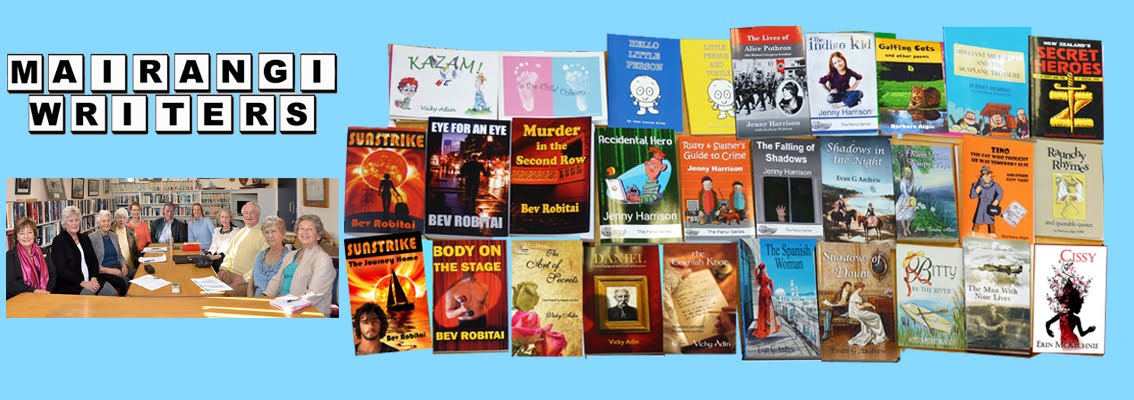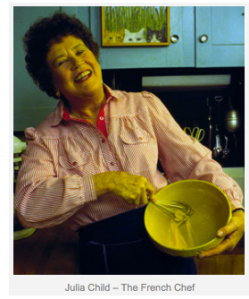This post is reblogged from Kristen Lamb's site (link below). She runs an excellent networking group for writers called WANA - We Are Not Alone, and she has her finger firmly on the pulse of publishing today.
What Mascara, Thai Food & Julia Child Can Teach Us About Social Media Success
Sorry. Traditional marketing cannot give the Hunger Games Effect. I didn’t make the rules. Anyone in publishing more than a minute will tell you that the only way to created the Harry Potter Effect or the DaVinci Code Effect—which is a mass mobilization of the fat part of the bell cure—is 1) good book and 2) word of mouth. Ads, commercials, trailers, mailers, bookmarks have minimal effect on the overall sales numbers and we will talk about why in a moment.
Sometimes it seems that life would be easier if traditional marketing could sell books because then we could pay for a nice book trailer and program an automated platform to blitz out “commercial” on every social site. Yet, the fact remains that books are not tacos or car washes.
So What’s a Writer to Do?
Too many writers are in search of what I call “the White Stag”—the voracious reader who devours books like candy. WHY? How many books can you write? Who cares if someone only reads two books a year if one or both are OUR books?
Writers spend far too much time marketing to a very small segment of the population that defines themselves as “readers.” Too much book marketing is happening in places where we are least likely to find most people—book stores, author blogs, book review sites, reader forums. And, you know who makes up the most of these “reader” groups?
Other writers.
The Family Tree Needs Branches
Thus, not only are we marketing to one of the smallest sections of society—the self-professed avid reader—but we are also spending far too much time marketing to each other. Writers get on Facebook and Twitter and hang out with each other, befriend each other and talk to each other. They blog about writing and talk about writing…at the expense of talking to potential readers.
Make no mistake, writers are awesome. I spend most of my time talking to writers. Yet, in fairness, you guys are my demographic. Ah, but hold on. Calm down. Writers are incredible, kind and talented. We should befriend writers. They are our professional core and our support network.
The Core Mistake
Yet, where the mistake happens is that fellow writers are our comfort zone. We cannot mistake our professional network for our reader demographic. Will writers make up part of our readership? Yes…but they are not ALL of our readership.
We MUST reach out to fresh blood and bring new readers into the family. If we don’t our platform becomes almost inbred, then starts playing the banjo and firing a shotgun in the air and it’s all downhill from there.
Is this your author platform?
Too many writers spend too much time talking to a small group at the expense of the big picture.
The Only People Who Read Are Avid Readers…um, No
Now, another HUGE misconception many writers have is that, unless someone professes to love reading that they, therefore, do not read at all. Major misconception. Avid readers simply need far less convincing because they already love to read.
Think of it this way.
Why traditional marketing works for other products is the consumer already wants what the market has to offer. Traditional marketing is merely there to help us choose from the options. So, if I make mascara that has the power to look like false eyelashes, then advertising in a woman’s magazine is a pretty safe bet.
Women already wear mascara. Most modern Western women, do NOT need to be convinced to wear makeup. They already do. So the fancy ad that uses Mila Jovovich and a crap load of Photoshop will offer an edge in sales and will sell mascara.
The tricky part about selling books is this is also how traditional marketing works for books. Traditional marketing only speaks to those people who love
All the ad does is help a self-professed reader choose between all the choices. Yet, convincing this demographic to read is not where the magic happens. Selling books to only self-professed readers will not create the Twilight Effect.
Thus, we as writers have the daunting task of convincing a demographic that our book is worth forgoing 12 hours of undivided attention they could be using on something else they already know they love, like watching Glee or hitting aliens with plasma grenades.
We have to convince consumers to part with money for an activity they do not believe they enjoy. THIS is why traditional marketing fails to sell books. We must tap into that outside group of people to get momentum. Ah, but when we do, watch out! It will hit critical mass and then BOOM!
The Fat Part of the Bell Curve is Essential to Hitting the Tipping Point
An example…
If I am from Thailand and I grew up eating spicy stuff all my life, then likely I will seek out Thai food restaurants. What if, however, I happen to open a Thai food restaurant in Arlington, TX? In Arlington, there happens to be a lot of people from Thailand.
Ah, but the problem is that with a large population of Thais comes a larger presence of Thai food restaurants. If all of them are catering to other Thai people and offering all kinds of authentic cuisine, then that is very steep competition. How can my little Thai restaurant survive?
I have to think differently.
I can go after the same patrons as all of my competition (fellow Thais), OR I can seek to introduce an exotic food to outsiders who don’t already believe they love Thai food. If I can convince Joe American to just try something different once…then my food can make the fan.
Joe will see that MY Thai restaurant has awesome food, and he will not only be loyal (since he is still afraid that other Thai restaurants will give him heartburn), but he will also tell all of his Joe American pals who don’t believe they like spicy stuff either.
Joe’s opinion will carry more weight with this new population of potential patrons. Why? Well, it’s nothing shocking for a Thai person to love Thai food. BUT, for Joe American who normally lives off hamburgers? His opinion is gold. Joe and his pals likely will still believe they hate Thai food….but THIS restaurant–MY restaurant–is different. My restaurant is that perfect choice for a date night or when you just want something different.
It just takes some creativity when defining our demographic. Put another way.
What Julia Child Can Teach Us About Social Media
Why was Julia Child so successful? She made fine French cuisine accessible to average people. See, the other French chefs of her time defined their demographic far too narrowly. They all targeted an elite group of foodies. Julia, however, saw her demographic as anyone who could masticate food and who wanted to enjoy the experience.
If you liked good food and maybe liked to cook, YOU were her demographic. Guess what? That was a demographic of hundreds of millions. The result? Julia Child became a legend. She didn’t patronize regular people. She believed that just because they hadn’t grown up in high society, didn’t mean they wouldn’t embrace fancy French cuisine and love it if given access.
Too many writers narrowly define their demographic as those people who say they love to read books and they patronize non-readers.
Yet, what is our REAL demographic? Anyone in need of informing or entertaining. THAT demographic is MASSIVE and when we writers mobilize THAT sector of society—the fat part of the bell curve—this is when literary history is made.
The DaVinci Code, the Harry Potter Series, Twilight, Tuesdays with Morrie, Water for Elephants, The Help all ignited a passion for stories in people who normally would not have defined themselves as avid readers.
Nothing Great Happens in the Comfort Zone
My advice to you guys? Break out of the comfort zone and start tapping into larger networks that can become readers. Go after new blood. This is one of the reason my blogging classes are very different. They are designed to teach writers to blog in ways that will connect outside that circle of comfort. I also have some tips in WANA for those of you who need some suggestions.
So what are your thoughts? What ways have you used to branch out from talking only to other writers? What suggestions or tips might you offer? Do you think you need help getting out of your comfort zone?
Read more from Kristen Lamb on her blog here http://warriorwriters.wordpress.com/



No comments:
Post a Comment